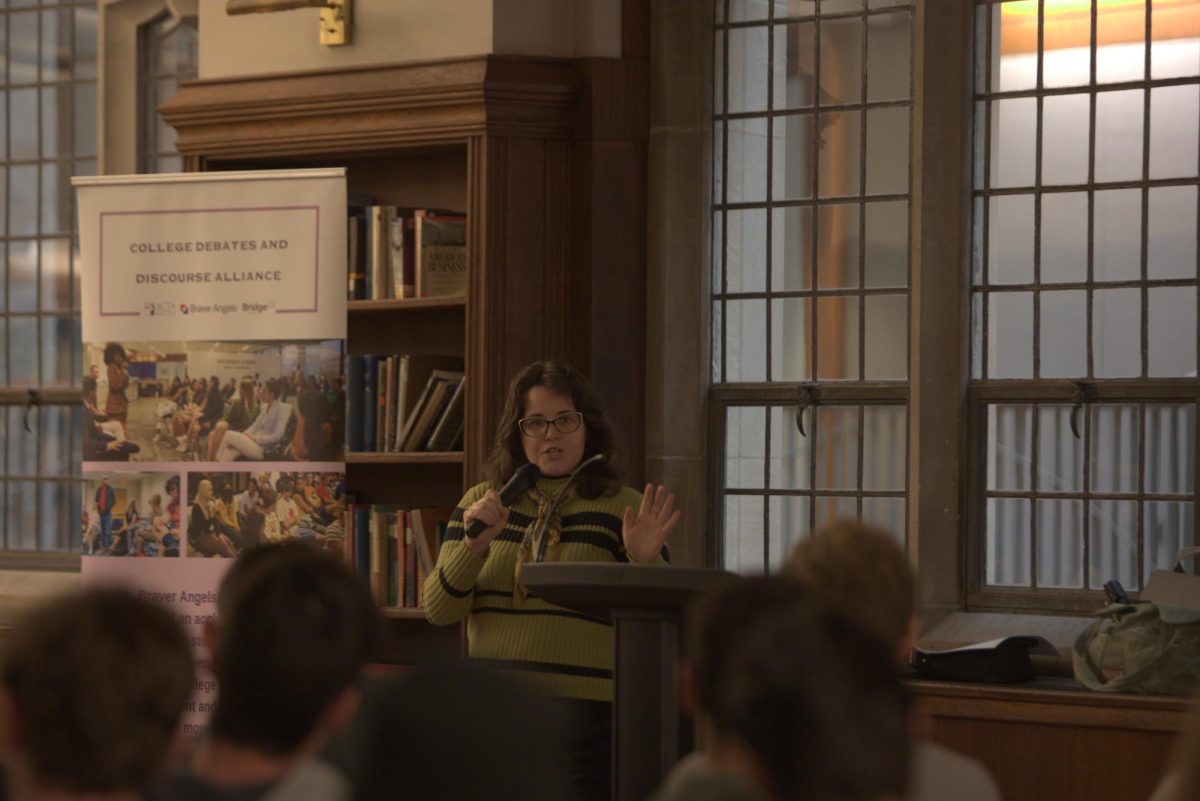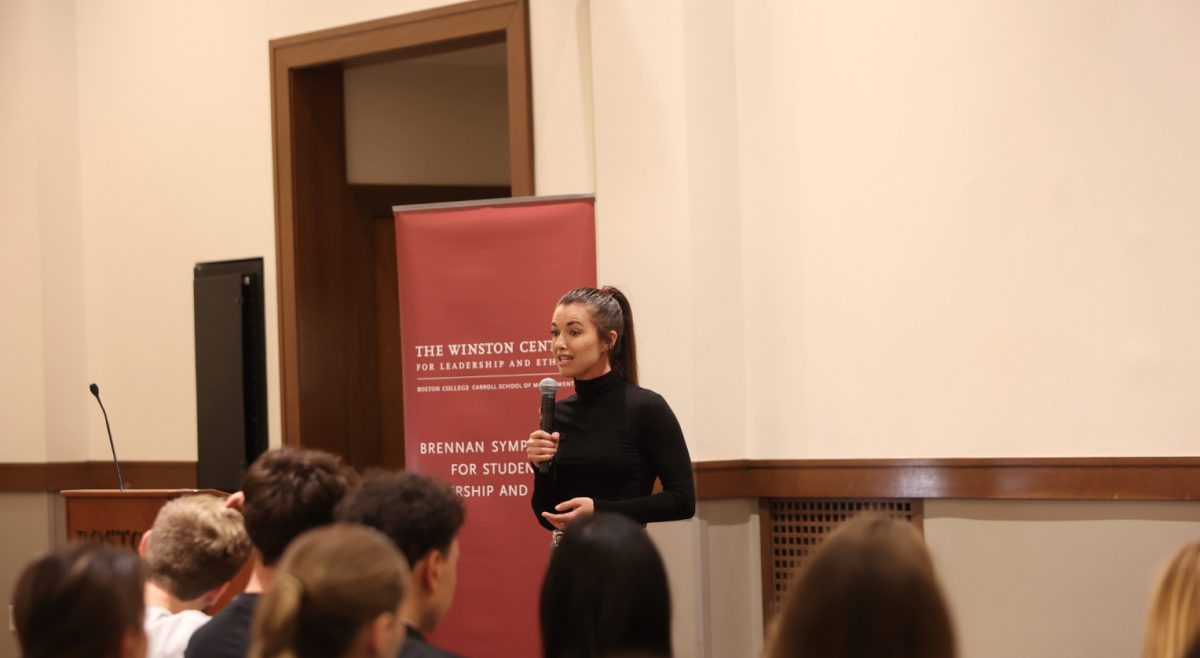The Undergraduate Government of Boston College’s Council for Students with Disabilities (CSD) serves to alleviate the physical and social barriers that students with disabilities, both physical and mental, face on campus.
Sean Dunphy, chair of CSD and CSOM ’21, recognizes that the organization’s focus in past years has been on physical disabilities, and he has made it his goal to balance the concentration of CSD equally between the needs of students with physical and mental disabilities. Among the events CSD has held this semester are a Soul Cycle mental health event and talks by various speakers, including Imani Barbarin, an African American woman with cerebral palsy who spoke about how to love your body with a physical disability.
CSD hopes to improve BC’s accessibility for its students this year, beginning by targeting a few individual issues. For example, CSD is working to establish a BC bus stop for University Health Services (UHS). Dunphy explained that many students resort to taking an Uber to UHS, and he believes a bus stop there will allay the inconvenience.
CSD is also hoping to reform the issues with Eagle Escort—such as transporting students to their classes and appointments in a timely manner—as well as the wheelchair accessibility of the vans themselves. Dunphy expressed disappointment that students weren’t being “treated fairly” by being forced to wait for Eagle Escort.
One of the biggest challenges CSD struggles with is low attendance at its meetings and events. Dunphy emphasized the importance of students expressing their concerns to the organization because if CSD does not know what issues people are struggling with, it cannot actively work toward addressing them. Throughout his involvement in the organization, he has observed that people often complain to their peers and not to CSD directly.
Another goal CSD has for this year is to reach out to BC’s Disabilities Services Office in order to take advantage of the office’s email listserv and encourage members of the BC community with both visible and invisible disabilities to attend its events. The organization strives for its meetings to be a stress-free environment that avoids putting students on a pedestal. Along those lines, CSD prefers to hold its meetings in the form of town halls because open discussions provide a comfortable environment for students to share their opinions.
“We just want to make sure we can voice their concerns and have them treated as they should be on campus,” Dunphy said. “Our meetings are on Sundays in Fulton 310 after 4:30 p.m., and anyone can come to voice their concerns.”
Dunphy said that the difficulties CSD faces in regard to students being reluctant to talk about their disabilities are not unique to BC. While some people are very proud of their disabilities and consider it part of their identity, others wish they didn’t have them altogether. Dunphy classified this as a “fine line” the organization has to operate on, but again he emphasized that if disabled students are not willing to have these conversations, it is extremely difficult for CSD to help them.
Specific to BC, Dunphy addressed the fact that the campus itself has some physical limitations in the way of achieving complete accessibility. Though he is an able-bodied student, he first became alert to the difficulty disabled people face in navigating BC’s campus when he was a prospective student.
“My father has Parkinson’s,” Dunphy said. “When we toured the campus, a lot of times, with all the stairs, it was hard for him to get around.”
Dunphy acknowledged that many people criticize BC for not being accessible. He believes that there are more steps the University can and should take toward improvements, but he urged people to realize that the campus is still located on a hill.
“We are definitely making strides to try and make BC as accessible as possible, but there are some limitations that we have just due to the geography of the campus itself,” he said.
Although there is much work to be done to help BC’s students with disabilities on campus, Dunphy credits the administration with being responsive to these matters. He works closely with Dean of Students Tom Mogan and meets regularly with Rory Stein, assistant dean of students with disabilities, both of whom are very open to helping alleviate the problems students with disabilities have on campus.
“I’ve never had any strict resistance about making things more accommodating to students with disabilities,” Dunphy said.
Aside from geography, the barriers that make change on campus difficult lie in obtaining funding from the University as well proving to administrators that an issue does, in fact, need fixing. Dunphy cited CSD’s attempt to reform Eagle Escort, noting that CSD struggles to get enough students to respond to surveys CSD and the office of the Dean of Students send out, which aim to show that the student body believes there are issues with Eagle Escort.
Dunphy discussed the various resources available, which he sees as the University’s attempt to assist students with disabilities—he noted that University Counseling Services (UCS) is an extremely beneficial resource for students. Another goal CSD has is to expand the number of hours that UCS is open. Also, the Disability Services Office provides students with a space to ask questions about the resources BC offers to students with disabilities, such as Eagle Escort. He also cited the Connors Family Learning Center as an important accommodation for students with mental disabilities.
Reflecting on the Silence is Still Violence March, Dunphy said he felt the protests have provided an opportunity for all members of the BC community to take a step back and place themselves in another person’s shoes in attempt to understand different perspectives. To Dunphy, the events surrounding the protests forced people to think about the way others want to be treated—a mindset that needs to be further examined in regard to ever-marginalized populations on campus, including students with disabilities.
Logistically, Dunphy said he believes the demonstrations themselves need to be more cognizant of accessibility. He says that in the planning of the Silence is Still Violence protests and of other events on campus, it does not occur to people to consider students who may want to attend them but need an accessible entryway or other accommodations.
“It is a great way to outwardly showcase the problems that, not just this campus, but in general, people have regarding people with disabilities,” he said.
Featured Image Courtesy of the Undergraduate Government of Boston College












